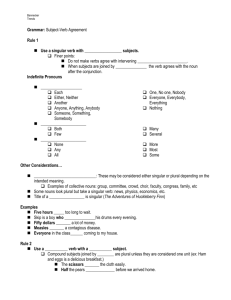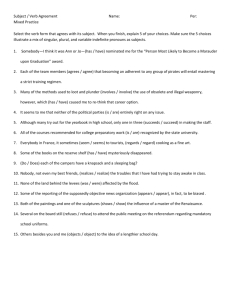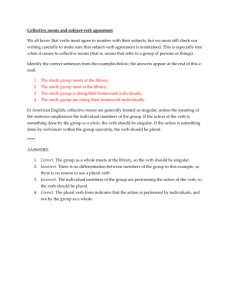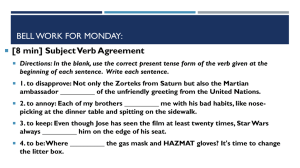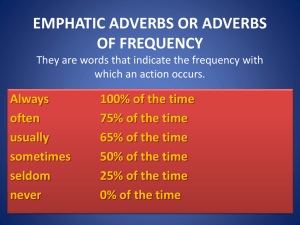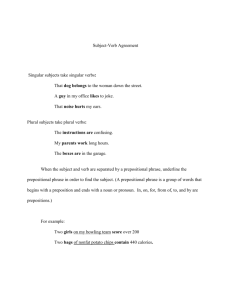sva
advertisement
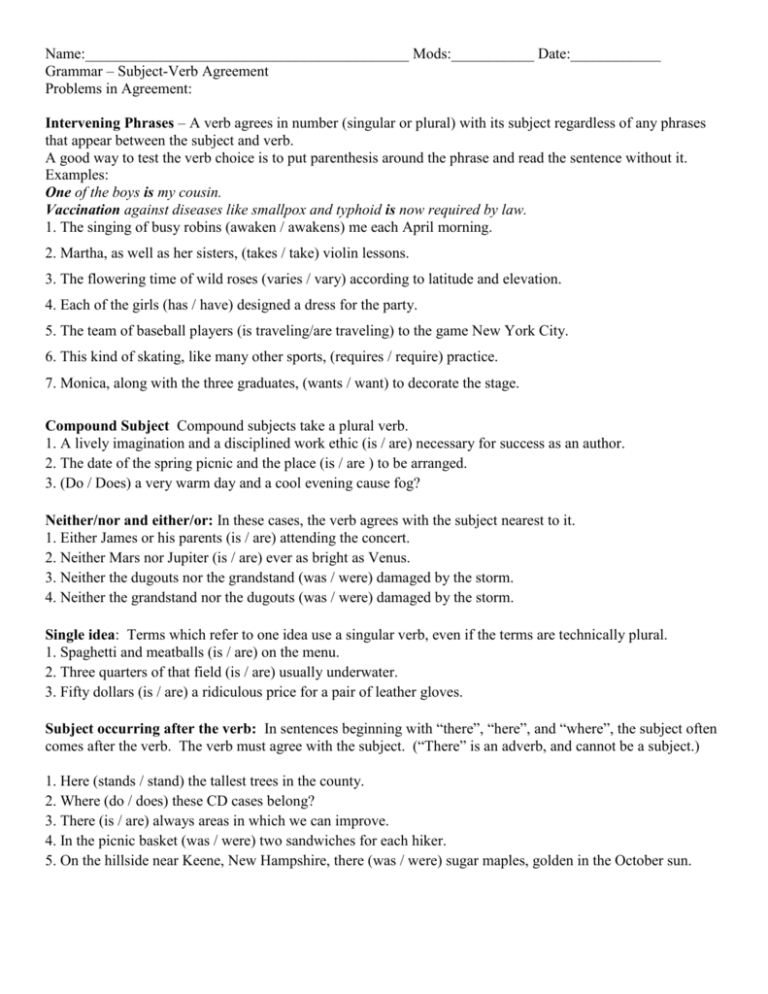
Name:___________________________________________ Mods:___________ Date:____________ Grammar – Subject-Verb Agreement Problems in Agreement: Intervening Phrases – A verb agrees in number (singular or plural) with its subject regardless of any phrases that appear between the subject and verb. A good way to test the verb choice is to put parenthesis around the phrase and read the sentence without it. Examples: One of the boys is my cousin. Vaccination against diseases like smallpox and typhoid is now required by law. 1. The singing of busy robins (awaken / awakens) me each April morning. 2. Martha, as well as her sisters, (takes / take) violin lessons. 3. The flowering time of wild roses (varies / vary) according to latitude and elevation. 4. Each of the girls (has / have) designed a dress for the party. 5. The team of baseball players (is traveling/are traveling) to the game New York City. 6. This kind of skating, like many other sports, (requires / require) practice. 7. Monica, along with the three graduates, (wants / want) to decorate the stage. Compound Subject Compound subjects take a plural verb. 1. A lively imagination and a disciplined work ethic (is / are) necessary for success as an author. 2. The date of the spring picnic and the place (is / are ) to be arranged. 3. (Do / Does) a very warm day and a cool evening cause fog? Neither/nor and either/or: In these cases, the verb agrees with the subject nearest to it. 1. Either James or his parents (is / are) attending the concert. 2. Neither Mars nor Jupiter (is / are) ever as bright as Venus. 3. Neither the dugouts nor the grandstand (was / were) damaged by the storm. 4. Neither the grandstand nor the dugouts (was / were) damaged by the storm. Single idea: Terms which refer to one idea use a singular verb, even if the terms are technically plural. 1. Spaghetti and meatballs (is / are) on the menu. 2. Three quarters of that field (is / are) usually underwater. 3. Fifty dollars (is / are) a ridiculous price for a pair of leather gloves. Subject occurring after the verb: In sentences beginning with “there”, “here”, and “where”, the subject often comes after the verb. The verb must agree with the subject. (“There” is an adverb, and cannot be a subject.) 1. Here (stands / stand) the tallest trees in the county. 2. Where (do / does) these CD cases belong? 3. There (is / are) always areas in which we can improve. 4. In the picnic basket (was / were) two sandwiches for each hiker. 5. On the hillside near Keene, New Hampshire, there (was / were) sugar maples, golden in the October sun.
